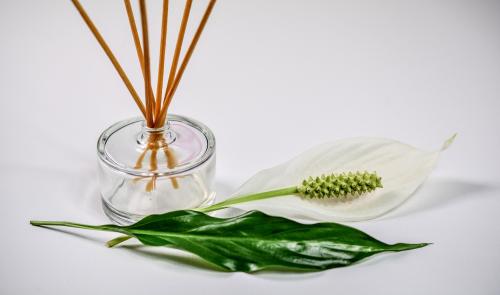A Beginners Guide To Essential Oils

Even if you don’t actively use essential oils at home, the chances are that you’ve experienced some of their properties before.
Have you ever walked through a field of lavender or peppermint, or even a pine forest, when the sun has been at its full height and just stopped and breathed in deeply? Feeling your senses filled with the aroma’s of those plants and your lungs filled with this clean energy? If so then you have indeed experienced the properties of essential oils, but not to their full extent!
Essential oils have been used for thousands of years to help suppress, soothe or even enhance emotions, and for a number of other benefits.
–
How To Use Essential Oils?
There are a number of ways in which you can use Essential Oils. Some people like to add a couple of drops to their bath and soak them in. Others add it to their message oils to boost their effects. Mostly however, people add theirs to oil burners or oil diffusers so that the benefits of the oil are released into the air and are allowed to circulate.
If you’re using an oil burner, fill the top with water and add a couple of drops of your chosen oil. Never let this fully evaporate while the candle underneath is lit as the burner may crack. The water and essential oils evaporate as steam, letting the aroma of the essential oils fill the room.
Which Oils Should You Use?
There are a large number of oils available and it can be overwhelming for the beginner to know which to go for. The most obvious way of beginning is by picking the smells you are most drawn to. However, specific oils have specific uses and if you’re looking to use Essential oils for an issue in particular then it’s useful to know which oils will give you the greatest chance of success.
Here are a list of emotions you may wish to suppress, sooth or enhance, and their associated oils.
–
Anger
- Bergamot
- Jasmine
- Neroli
- Orange
- Patchouli
- Petitgrain
- Roman Chamomile
- Rose
- Vetiver
- Ylang Ylang
Anxiety
- Bergamot
- Cedarwood
- Clary Sage
- Frankincense
- Geranium
- Lavender
- Mandarin
- Neroli
- Patchouli
- Roman Camomile
- Sandalwood
- Vetiver
Confidence
- Bay Laurel
- Bergamot
- Cypress
- Grapefruit
- Jasmine
- Orange
- Rosemary
Depression
- Bergamot
- Clary Sage
- Frankincense
- Geranium
- Grapefruit
- Helichrysum
- Jasmine
- Lavender
- Lemon
- Mandarin
- Neroli
- Orange
- Roman Chamomile
- Rose
- Sandalwood
- Ylang Ylang
Fear
- Bergamot
- Cederwood
- Clary Sage
- Frankincense
- Grapefruit
- Jasmine
- Lemon
- Neroli
- Orange
- Roman Chamomile
- Sandalwood
- Vetiver
Grief
- Cypress
- Frankincense
- Helichrysum
- Neroli
- Rose
- Sandalwood
- Vetiver
Insecurity
- Bergamot
- Cedarwood
- Frankincense
- Jasmine
- Sandalwood
- Vetiver
Happiness
- Bergamot
- Frankincense
- Geranium
- Grapefruit
- Lemon
- Neroli
- Orange
- Rose
- Sandalwood
- Ylang Ylang
Irritability
- Lavender
- Mandarin
- Neroli
- Roman Chamomile
- Sandalwood
Loneliness
- Bergamot
- Clary Sage
- Frankincense
- Helichrysum
- Roman Chamomile
- Rose
Peace
- Bergamot
- Frankincense
- Geranium
- Grapefruit
- Lemon
- Neroli
- Orange
- Rose
- Sandalwood
- Ylang Ylang
Stress
- Benzoin
- Bergamot
- Clary Sage
- Frankincense
- Geranium
- Grapefruit
- Jasmine
- Lavender
- Mandarin
- Neroli
- Patchouli
- Roman Chamomile
- Rose
- Sandalwood
- Vetiver
- Ylang Ylang